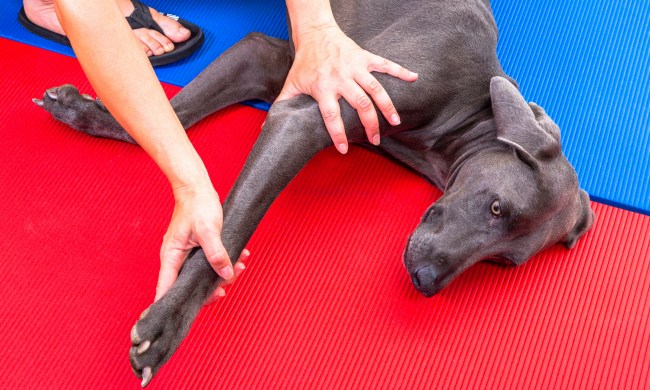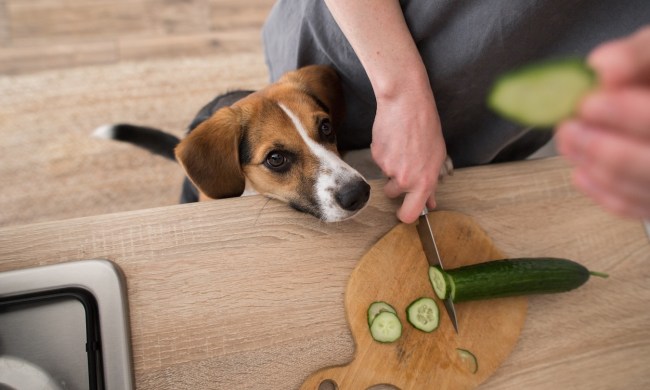
Honey may be one of the most popular names for girl dogs, but can these pups taste their namesake? It’s only natural to wonder about the safety of human foods for dogs, especially when you don’t see or hear about dogs eating honey every day. It’s more commonly found in pastries, teas, and plenty of delicious snacks for people, but can dogs have honey, too?
In just a minute, you’ll know all you need to know about dogs, honey, and what can happen if you share this sticky treat with your furry friend (besides a mess, that is).
Can dogs have honey?

Good news! Honey is safe for most dogs to consume in small amounts. It’s best used as an occasional treat or even a topper for dry food, but be sure not to overdo it. For example, when feeding your dog any human foods, too much of a good thing isn’t a good thing at all!
The general rule of thumb is that your dog’s daily treats, including honey, should not make up more than 10% of their daily calorie intake. So, while you may not pay attention to the nutritional label while pouring yourself a spoonful of this sticky stuff, you should make a mental note of the calorie amount before feeding it to your dog.
As with any new food, start slow when giving your dog honey for the first time. Let them lick a pea-sized drop off of your finger to see how they like it. You can probably get away with one more lick for good measure on day one, but wait and watch your dog for any signs of stomach upset before making honey a regular treat.
Benefits of honey for dogs

People use honey for many purposes besides taste, including curing sore throats, stomach upset, skin irritation, and even inflammation. But does honey have the same effects on dogs? It might! Many veterinarians recommend pet parents feed their dogs small amounts of local honey to help with seasonal allergies — but how exactly does that work?
“Honey contains anti-inflammatory compounds and trace amounts of flower pollen,” explains Canadian-based Elias Honey. “During the winter, honey can help dogs modulate allergen response, so by the time spring comes, it can help prevent an autoimmune response to airborne pollen.” In other words, by consuming tiny amounts of local flower pollen in honey, dogs get used to having this in their system and they won’t suffer such a severe allergic reaction when that pollen is in the air come springtime.
Because honey contains antiviral, antifungal, and antibacterial properties, some pet parents also use honey as an edible salve for minor cuts, rashes, hot spots, and insect bites. Applying this to your dog’s skin can be safer if your pup is known to lick or gnaw on wounds.
Dangers of honey for dogs

Honey may sound like a magic ingredient, but it’s not meant for every dog. Its high sugar content means it’s not safe to feed diabetic or overweight dogs every day. This sugar can also contribute to dental problems in the long run, but moderation and regular tooth brushing can help in that department.
Additionally, honey may contain botulism spores that can put puppies, senior dogs, and dogs with compromised immune systems at risk of getting sick. If you’re unsure whether your dog can safely eat honey, it’s always smart to ask your vet!
While there’s no doubt that honey can be a delicious addition to any snack, drink, or meal for people, it’s understandable why some dog owners may need to exercise caution when feeding their pups honey. There’s a risk of a negative reaction when you feed your dog any new food, but if you take it slow, most dogs tolerate honey just fine. Many dogs love it, too!



